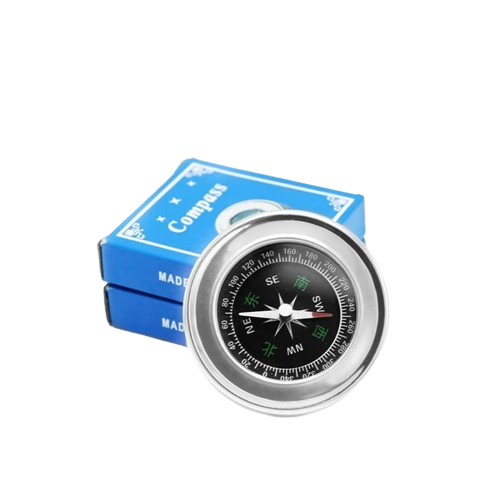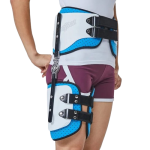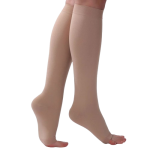A magnetic compass is a navigation instrument that uses a freely moving magnetized needle to point toward the Earth’s magnetic north. It helps users determine direction (north, south, east, west) and bearings for navigation, whether on land, at sea, or in the air.
The compass works because the Earth itself acts like a giant magnet, with magnetic field lines that the needle aligns with.
Things to Consider Before Purchasing a Magnetic Compass
- Purpose & Type
- Baseplate compass – Good for hiking, trekking, and map reading.
- Lensatic/military compass – Rugged and ideal for field navigation.
- Marine compass – Designed for boats, with dampening to reduce needle movement.
- Thumb compass – Used mainly for orienteering sports.
- Accuracy & Sensitivity
- Look for a compass with a high-quality, stable needle that settles quickly.
- Liquid-filled compasses are more stable and easier to read.
- Declination Adjustment
- Ability to adjust for magnetic declination (the difference between magnetic north and true north) is useful for precise navigation.
- Durability & Build Quality
- Choose a compass with a strong, impact-resistant casing.
- Waterproof or weather-resistant construction is important for outdoor use.
- Size & Portability
- Compact compasses are easy to carry, while larger ones may offer more precise readings.
- Visibility & Markings
- Clear degree markings for accurate bearings.
- Luminescent markings for use in low-light conditions.
- Additional Features
- Sighting mirror for taking bearings on distant objects.
- Clinometer for measuring slopes.
- Magnifier for map reading.
- Region of Use
- Magnetic compasses are balanced for specific zones of the Earth’s magnetic field. A compass balanced for one region may tilt and give inaccurate readings in another.






